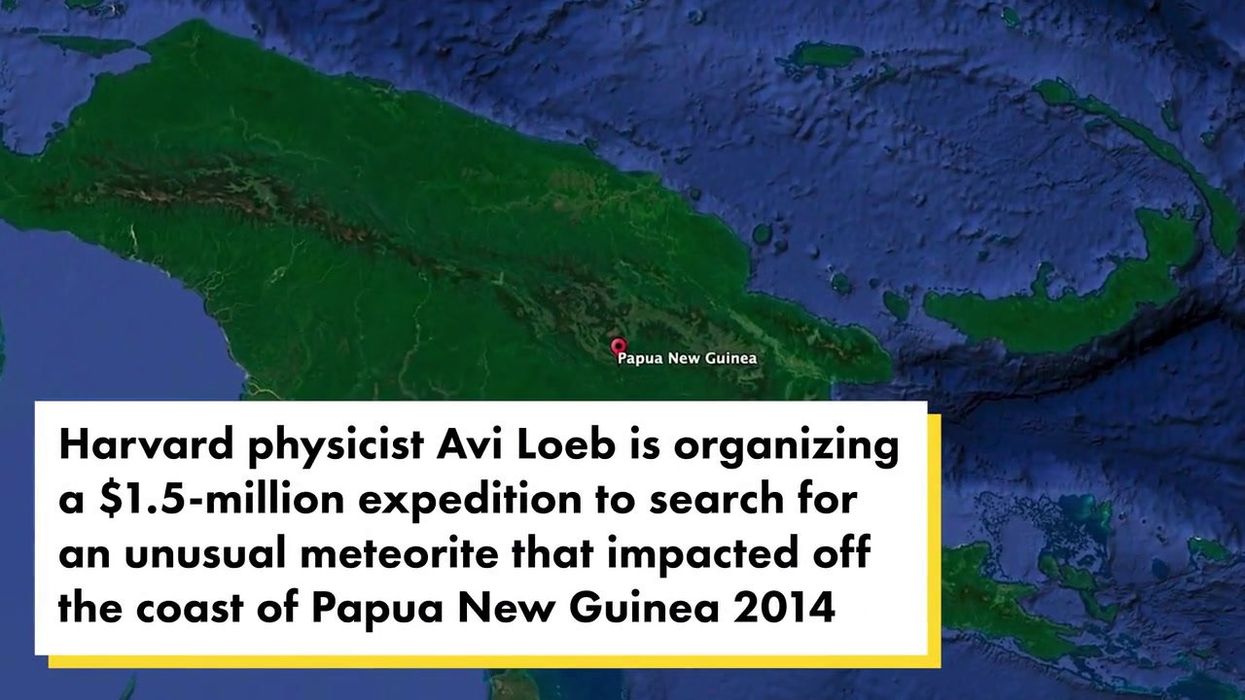Science & Tech
Sinead Butler
Mar 25, 2023
A Harvard Physicist Is Racing to Prove This Meteorite Is an Alien …
content.jwplatform.com
A Harvard physicist has detailed his planned expedition to Papua New Guinea with the ambitious task of gathering remnants of a meteorite that he believes could be an alien probe.
Avi Loeb who is head of the Galileo Project, the "Systematic Scientific Search for Evidence of Extraterrestrial Technological Artifacts", hopes to find fragments CNEOS1 2014-01-08 which crashed into Earth back in 2014 during the $1.5 million mission trip he organised to visit the Pacific island nation.
In an post on Medium, Loeb shared earlier thisyear that he and his "dream team, including some of the most experienced and qualified professionals in ocean expeditions" are ready to embark on an expedition in the near future.
“Within a couple of months, I will be leading an expedition to collect the fragments of the first interstellar meteor. This meteor is the first near-Earth object ever detected by humans from outside the solar system," he wrote.
Sign up to our free Indy100 weekly newsletter
He added that he has a boat as well as a "complete design and manufacturing plans for the required sled, magnets, collection nets and mass spectrometer. And most importantly, today we received the green light to go ahead."
Loeb and his team (along with some help from the US military) managed to narrow down where the impact zone is and say it's around a hundred kilometers off the coast of Manus Island.

Full data on the fireball was given to Loeb after he convinced the Pentagon to release it, who believe it might be the hardest meteorite on record Daily Beast reported.
“Analyzing the composition of the fragments could allow us to determine whether the object is natural or artificial in origin," Loeb said.
Though he acknowledge to the publication that "there is a chance it will fail" if the remnants are actually natural and not artificial as he believes.
The physicist and author of the 2021 book Extraterrestrial: The First Sign of Intelligent Life Beyond Earth shared a theory that the remnants "are tough because they are artificial in origin, resembling our own interstellar probes but launched a billion years ago from a distant technological civilization".
If Loeb and his team discover significant findings, he shared what he will do with it.
“In case we recover a sizable technological relic from the Pacific Ocean, I promised the curator of the Museum of Modern Art, Paula Antonelli, that I will bring it for display in New York," he said.
Have your say in our news democracy. Click the upvote icon at the top of the page to help raise this article through the indy100 rankings.
Top 100
The Conversation (0)














